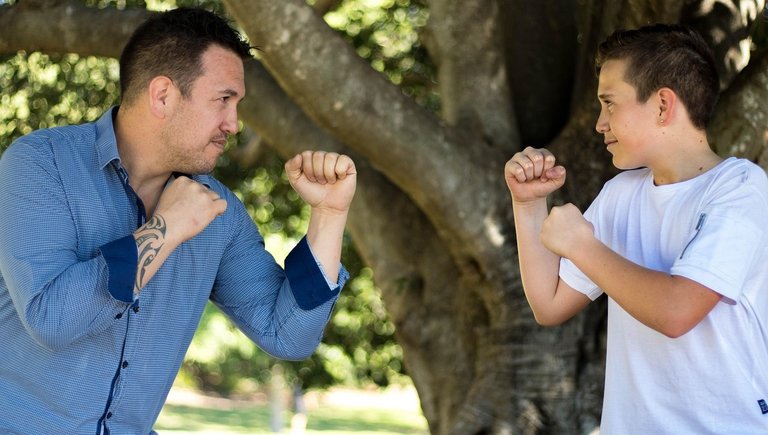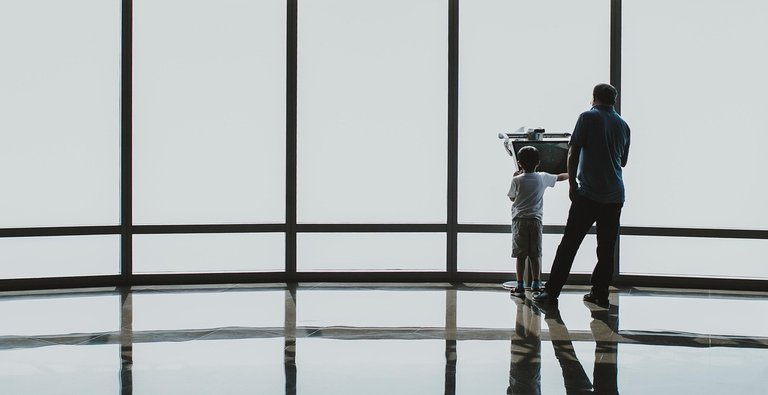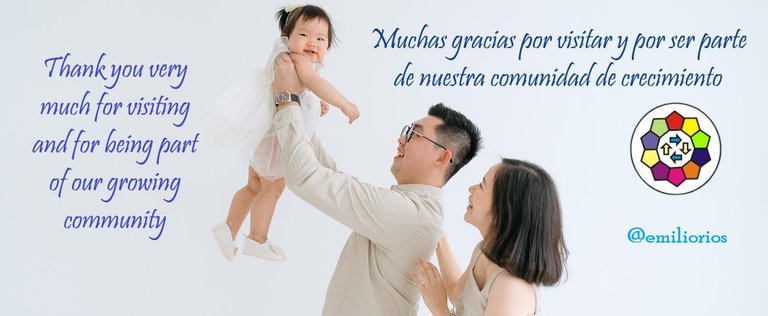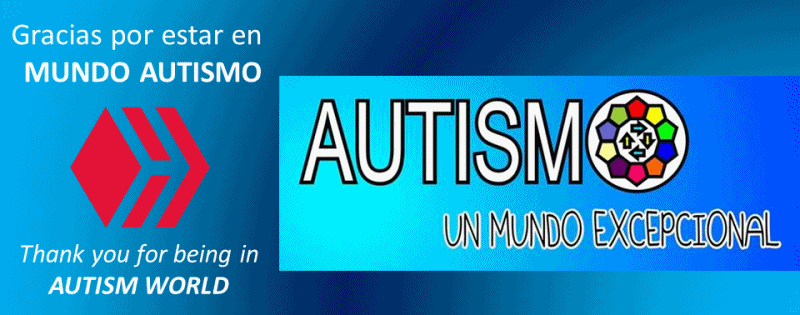

Explorar la vida, que de por sí es un viaje maravilloso, con desafíos diarios y teniendo la asignación de ser padres, es básicamente lo mismo en cualquier etapa.
No existen teorías ni fórmulas milagrosas para que la paternidad y la maternidad se lleven a cabo en perfecta armonía.
Pero ¡qué importante es tener un hogar con tranquilidad, solvencia y con reglas claras, que permita el desarrollo de todos como individuos, pero juntos, como una red de apoyo!
Ser buenos padres es como ser un buen profesional o como ser un buen hijo; supone aprendizajes gratificantes, pero también, de mucho corazón y cerebro ante cada día que se vive.
Aquí están cinco consejos básicos importantes que, entre todos, podemos desarrollar.


1.- Él es quien te tocó tener, es el adecuado
Necesitas aprender a aceptar la individualidad de cada persona que se te ha dado, con la responsabilidad de velar por su bienestar y su crecimiento, no criticar sus condiciones.
¡Es como es!; y tiene sus propias habilidades que desarrollar, por lo que, trata de ayudarle y no trates de cambiarlo.
El hijo que te ha tocado es el que te correspondía tener, incluso, para tu propio crecimiento; ¡tú puedes hacerlo!
2.- Ellos no te han elegido
Es algo que debemos hacer conciencia, pues ellos no han decidido estar en tu hogar desde el punto de vista consciente.
Tal vez a nivel espiritual, pero desde el punto de vista consciente, ellos no han decidido venir; por lo tanto, es tu trabajo y tu responsabilidad hacer que el hecho de que ellos estén a tu lado sea una situación correcta y la mejor.
De hecho, si ha existido la posibilidad de elegir la familia a la cual venir al planeta, te corresponde hacer que esta decisión sea la más acertada.

3.- Aceptación, aceptación, aceptación
Un ser humano que acepta ser padre o lo decide como parte de su vida, tiene que aprender a aceptar la forma de ser de los otros, a reconocer los sentimientos de los demás, a ver y a respetar las diferenciaciones que existan.
Su objetivo es permitir que el otro se desarrolle y aceptar que ese desarrollo es a la manera de quien lo vive, tal como a él le sucedió, porque es imposible que su forma de ser haya sido impresa por alguien desde fuera.
Aunque hay mucho impreso socialmente en cada ser humano.
Hay que aprender a evaluarse a sí mismo en cada una de las etapas, tanto de su hijo como de sí mismo en todos los aspectos; y nunca perder de vista los objetivos, que son, llevar con la mejor de la satisfacción y bienestar, el desarrollo de un ser humano hasta que pueda valerse por sí mismo y se independice.

4.- Desprenderse del común
Por cierto, que este es un buen momento para aprender a dejar a un lado las comparaciones.
No compararte, ni tener esquemas tomados de otros; recuerda que tus padres criaron personas diferentes a las que estás criando tú.
Y puedes tener esquemas morales y éticos que mejoren la convivencia en tu núcleo familiar y con el entorno pero, específicamente, la forma como vas a criarlos no es la misma de nadie, es única, porque la relación que construyes con tus hijos es única y las lecciones de vida que ambos van a aprender van a ser únicas.
5.- Acepta lo que no sale bien
Por último, me gustaría que entendiéramos todos, que no siempre van a salir las cosas como las hemos previsto, no solo en esto, en todo.
Lo importante es no reaccionar en forma emocionalmente negativa y, para eso, debemos dejar puertas abiertas para que suceda lo inesperado.
Tampoco debes esperar hacerlo todo, en todo momento, por lo que, construye más bien relaciones positivas, sanas, cercanas y motivadas por el amor.
Que tu presencia sea un espacio para encontrar respuestas y cobijo.

Cada ser humano es diferente
Como médicos estamos acostumbrados a dar consejos o recomendaciones a los padres que tienen hijos con discapacidad; pero esto no me parece tan diferente a cuando le enseñamos a los padres que vivan cada día, que conozcan las diferencias que tienen cada uno de sus hijos y que se mantengan positivos y abiertos al aprendizaje que puedan recibir de su red de apoyo.
Igualmente, aprender de las lecciones de otros para poder resolver los propios desafíos; y que se fortalezcan en el amor, no en la lástima.
Así, estamos hablando no solo de los hijos con discapacidad, estamos hablando de cualquier hijo.
Recuerden que los padres necesitan descanso, entendimiento, comprensión, porque no es una labor fácil.
Y lo importante, es crear un hogar con una atmósfera donde todos podamos desarrollarnos: ellos, en sus primeras etapas de vida, y los padres, en estas etapas en las que deben llevar a cabo esta asignación tan maravillosa que es llevar un hijo hacia la independencia.
Esto es un proyecto de muchos años, así que, lucha tu relación de pareja, aprende, perdona, mantén una familia unida.

Nota necesaria:
Esta publicación delega un porcentaje de lo recaudado a la amiga y creadora de contenido @santamorillo quien, junto a su familia y a mucha de la gente que, junto a ellos, vive en Venezuela, está atravesando por desafíos producto de las lluvias. Por eso les invito a leer el post de la amiga @charjaim donde explica la situación y lo que podremos hacer como comunidad de #Hive para apoyarles. Mil gracias de antemano.


Exemplary Parents: Do They Exist? -5 Basic Recommendations from the Doctor's Office to Achieve This- Reflections


Exploring life, which is in itself a wonderful journey, with daily challenges and the responsibility of being parents, is basically the same at any stage.
There are no theories or miracle formulas for parenting to be carried out in perfect harmony.
But how important it is to have a peaceful, stable home with clear rules that allows everyone to develop as individuals, but together, as a support network!
Being good parents is like being a good professional or a good child; it involves rewarding learning experiences, but also a lot of heart and brainpower every day.
Here are five important basic tips that we can all develop together.


1.- He is the one you were meant to have, he is the right one
You need to learn to accept the individuality of each person you have been given, with the responsibility of ensuring their well-being and growth, not criticizing their circumstances.
They are who they are!, and they have their own abilities to develop, so try to help them and don't try to change them.
The child you have been given is the one you were meant to have, even for your own growth. You can do it!
2.- They did not choose you
This is something we must be aware of, because they did not consciously decide to be in your home.
Perhaps on a spiritual level, but from a conscious point of view, they have not decided to come; therefore, it is your job and your responsibility to make their presence in your life a positive and optimal situation.
In fact, if there was a possibility of choosing the family to come to on this planet, it is up to you to make this decision the most appropriate one.

3.- Acceptance, acceptance, acceptance
A human being who accepts being a parent or decides to do so as part of their life must learn to accept other people's ways of being, to recognize their feelings, and to see and respect the differences that exist.
Their goal is to allow the other person to develop and accept that this development is in the way of the person experiencing it, just as it happened to them, because it is impossible for their way of being to have been imprinted by someone from outside.
Although there is a lot that is socially imprinted on every human being.
You have to learn to evaluate yourself at each stage, both your child and yourself in all aspects, and never lose sight of the goals, which are to bring about the development of a human being with the greatest satisfaction and well-being until they can fend for themselves and become independent.

4.- Let go of the ordinary
By the way, this is a good time to learn to let go of comparisons.
Don't compare yourself to others or copy their ideas; remember that your parents raised different people than you are raising.
You can have moral and ethical frameworks that improve coexistence in your family and with your environment, but specifically, the way you raise your children is not the same as anyone else's; it is unique because the relationship you build with your children is unique, and the life lessons you both will learn will be unique.
5.- Accept what does not go well
Finally, I would like us all to understand that things will not always turn out as we have planned, not only in this, but in everything.
The important thing is not to react emotionally negatively, and to do that, we must leave doors open for the unexpected to happen.
You should not expect to do everything, all the time, so instead, build positive, healthy, close relationships motivated by love.
Let your presence be a space for finding answers and shelter.

Every human being is different
As doctors, we are used to giving advice or recommendations to parents who have children with disabilities; but this does not seem so different to me from when we teach parents to live each day, to understand the differences between each of their children, and to remain positive and open to the learning they can receive from their support network.
Likewise, learning from the lessons of others in order to solve their own challenges; and that they are strengthened by love, not pity.
So, we are not only talking about children with disabilities, we are talking about any child.
Remember that parents need rest, understanding, and compassion, because it is not an easy task.
And the important thing is to create a home with an atmosphere where we can all develop: children in their early stages of life, and parents in these stages where they must carry out the wonderful task of guiding a child toward independence.
This is a long-term project, so work on your relationship, learn, forgive, and keep your family together.

Important note:
This post donates a percentage of the proceeds to our friend and content creator @santamorillo who, along with her family and many other people living in Venezuela, is facing challenges due to the rains. That's why I invite you to read the post by our friend @charjaim, where she explains the situation and what we can do as the #Hive community to support them. Thank you very much in advance.



Barras separadoras y logo de English, creadas y editadas en Paint.
Separator bars and English logo, created and edited in Paint.Banner personalizado de @emiliorios realizado en Paint, con vectores de:
Custom banner by @emiliorios made in Paint, with vectors of:
Pixabay-CromaconceptovisualImagen de agradecimiento, tomando el logo de nuestra comunidad y editada en Paint, de:
Thank you, image, taking our community logo and edited in Paint, by:
Pixabay-UncleSRSi lo deseas, puedes seguirnos en:
If you wish, you can follow us at:








